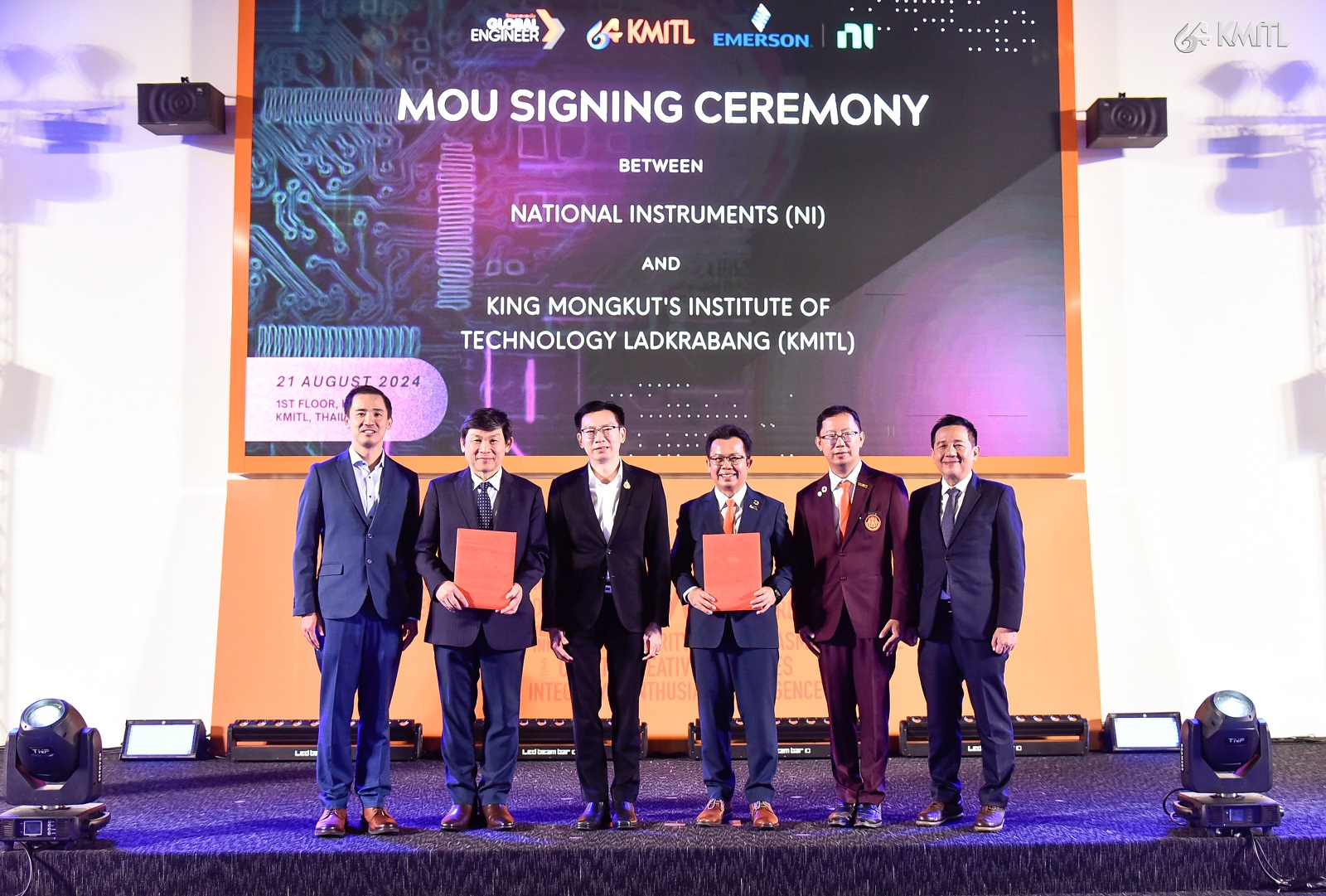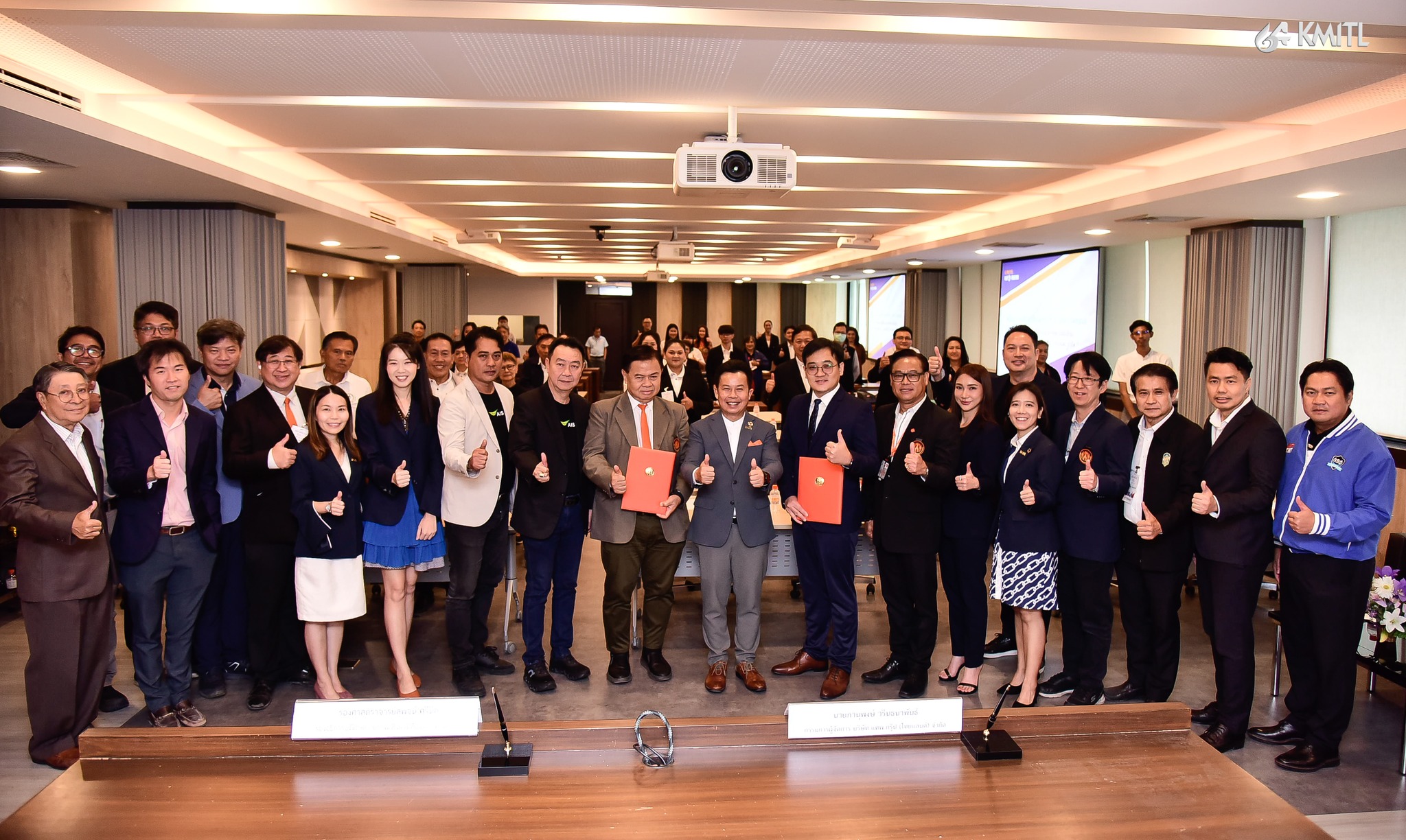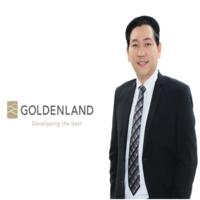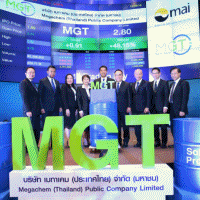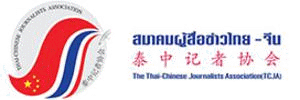- Details
- Category: Logistics
- Published: Wednesday, 25 May 2016 12:11
- Hits: 2840

เฟดเอ็กซ์ เปิดศูนย์โลจิสติกส์ในเมืองเมมฟิส สำหรับสินค้าควบคุมความเย็นโดยเฉพาะ เสริมประสิทธิภาพการจัดส่งยาและสินค้าด้านสุขภาพ ระหว่างสหรัฐอเมริกาและเอเชียแปซิฟิก รวมทั้งจุดหมายปลายทางทั่วโลก
เฟดเอ็กซ์ เอ็กซ์เพรส บริษัทในเครือของเฟดเอ็กซ์ คอร์ปอเรชั่น (ตัวย่อในตลาดหลักทรัพย์นิวยอร์ค FDX) และเป็นผู้ให้บริการจัดส่งพัสดุรายใหญ่ที่สุดของโลก ประกาศเปิดศูนย์โลจิสติกส์สำหรับสินค้าควบคุมความเย็นหรือ เฟดเอ็กซ์ โคลเชน เซ็นเตอร์ (FedEx Cold Chain Center) ขึ้นที่ศูนย์กลางขนส่งทั่วโลกของเฟดเอ็กซ์ ในเมืองเมมฟิส มลรัฐเทนเนสซี ประเทศสหรัฐอเมริกา โดยศูนย์ดังกล่าวมีขนาด 7,710 ตารางเมตร และออกแบบมาสำหรับการจัดส่งยาและสินค้าสุขภาพ รวมถึงสินค้าที่เน่าเสียง่ายโดยเฉพาะ ซึ่งต้องควบคุมอุณหภูมิให้เหมาะสมตลอดการจัดส่งเพื่อรักษาความสมบูรณ์ของผลิตภัณฑ์
การเปิดศูนย์ FedEx Cold Chain Center จะช่วยเสริมประสิทธิภาพให้บริการจัดส่งยาและสินค้าด้านสุขภาพของเฟดเอ็กซ์ หรือ FedEx? Healthcare Solutions รวมทั้งขยายเครือข่ายการจัดส่งพัสดุควบคุมความเย็นให้ครอบคลุมทั่วโลกมากยิ่งขึ้น ลูกค้าจึงมีทางเลือกในการจัดส่งพัสดุที่ต้องการการดูแลแบบพิเศษ ไปยังเอเชียแปซิฟิก และสหรัฐอเมริกา รวมถึงประเทศอื่นๆ ทั่วโลก ได้มากขึ้น
ในแต่ละปี การจัดส่งเวชภัณฑ์และผลิตภัณฑ์เพื่อสุขภาพที่ต้องควบคุมอุณหภูมิมีมูลค่าสูงถึง 1.3 แสนล้านเหรียญสหรัฐ หรือราว 4.5 ล้านล้านบาท[1] โดยผลิตภัณฑ์เหล่านี้นับว่ามีความสำคัญอย่างมากเพราะจำเป็นต่อการดูแลรักษาผู้ป่วย จึงต้องมั่นใจว่าสินค้าต้องคงความสมบูรณ์เมื่อถึงมือผู้รับทั่วโลก โดยมูลค่าการจัดส่งยาและสินค้าด้านสุขภาพมีแนวโน้มเพิ่มขึ้นทุกปี สำหรับภูมิภาคเอเชียแปซิฟิกคาดว่าการจัดส่งผลิตภัณฑ์ที่ต้องควบคุมความเย็นจะมีอัตราเติบโตในระดับเลขสองหลักภายในปี 2563[2]
คาเรน เรดดิงตัน ประธานเฟดเอ็กซ์ เอ็กซ์เพรส ประจำภูมิภาคเอเชียแปซิฟิก กล่าวว่า “ประสิทธิภาพในการจัดส่งสินค้าแบบควบคุมความเย็นที่ทันสมัย จะช่วยให้อุตสาหกรรมยาและสุขภาพในเอเชียแปซิฟิกสามารถก้าวข้ามอุปสรรคด้านการจัดส่ง และเปิดกว้างในการนำเสนอสิ่งใหม่ๆ ให้กับผู้บริโภคทั่วโลกได้ โดยในช่วง 2-3 ปีก่อนนั้น สินค้าที่เปราะบางที่สุดอย่างชีวเวชภัณฑ์ ไม่สามารถขนส่งข้ามโลกหรือทำได้แต่ยากลำบากมาก แต่ปัจจุบันกลับกลายเป็นเรื่องง่าย ด้วยเทคโนโลยีการจัดส่งแบบควบคุมความเย็นที่ล้ำสมัย เรามั่นใจว่าการเปิดศูนย์โลจิสติกส์สำหรับสินค้าควบคุมความเย็นขึ้นที่เมมฟิส จะสร้างความได้เปรียบในด้านบริการ และช่วยให้เฟดเอ็กซ์สามารถตอบรับความต้องการในการจัดส่งยาและสินค้าสุขภาพทั่วโลกได้อย่างรวดเร็ว”
ศูนย์โลจิสติกส์สำหรับสินค้าควบคุมความเย็นในเมมฟิสของเฟดเอ็กซ์ นำเสนอบริการจัดส่งสินค้าที่ก้าวล้ำโดยสามารถควบคุมอุณหภูมิให้ความเหมาะสมได้อยู่เสมอ แม้ในสถานการณ์ที่อาจก่อให้เกิดความล่าช้าในการจัดส่งอย่างคาดไม่ถึง เช่น การตรวจสินค้าผ่านศุลกากร หรือเมื่อเกิดสภาพอากาศแปรปรวน โดยมีจุดเด่นของบริการ ได้แก่
- การแบ่งพื้นที่ควบคุมอุณหภูมิให้เหมาะสมกับผลิตภัณฑ์แต่ละประเภท ได้แก่ โซนสินค้าแช่แข็งที่อุณหภูมิ -25?C ถึง -10?C โซนสินค้าแช่เย็นที่ 2?C ถึง 8?C และโซนสินค้าที่อุณหภูมิห้อง 15?C ถึง 25?C
- การแยกพื้นที่จัดเก็บสำหรับผลิตภัณฑ์ยาและสุขภาพ และสินค้าที่เน่าเสียง่ายอื่นๆ ที่ต้องแช่เย็นอย่างเป็นสัดส่วน เช่น อาหารพิเศษ ดอกไม้ และอาหารทะเล
- มีการตรวจวัดระดับก๊าซคาร์บอนไดออกไซด์ ความชื้น และอุณหภูมิ ในแบบเรียลไทม์
- มีสถานีเอกสารคลังสินค้าระหว่างประเทศ หรือ International Document Agent ประจำศูนย์ ซึ่งเปิดตลอด 24 ชั่วโมงโดยไม่มีวันหยุด และมีเจ้าหน้าที่คอยติดตามดูแลด้านนี้โดยเฉพาะ
- การวางสินค้าบนแท่น การจัดเรียง และการคัดแยกสินค้า จะใช้ผ้าคลุมควบคุมอุณหภูมิ หรือ FedEx Thermal Blanket ในทุกขั้นตอน ซึ่งเป็นโซลูชั่นของเฟดเอ็กซ์ที่ออกแบบมาโดยเฉพาะเพื่อรักษาอุณหภูมิในระหว่างการขนส่งสินค้า
- อุปกรณ์จัดเก็บออกแบบมาให้สามารถเติมน้ำแข็งแห้ง และเปลี่ยนเจลรักษาความเย็นได้ในระหว่างขนส่ง
- สถานีเปลี่ยนถ่ายสินค้าสามารถเชื่อมกับรถพ่วงได้โดยตรง และรักษาอุณหภูมิความเย็นไว้ที่ 2?C ถึง 8?C
- ระบบประตูล็อคเย็นสองชั้นเพื่อการควบคุมอุณหภูมิที่แม่นยำ
ศูนย์โลจิสติกส์สำหรับสินค้าควบคุมความเย็นในเมมฟิส ถือเป็นศูนย์ต้นแบบแห่งแรกในเครือข่ายของเฟดเอ็กซ์ นอกจากนี้เฟดเอ็กซ์ยังมีศูนย์โลจิสติกส์ควบคุมความเย็นที่มีขนาดย่อมกว่า และเปิดบริการมาแล้วก่อนหน้านี้อีก 3 แห่ง ที่ท่าอากาศยานชาร์ล เดอ โกล ประเทศฝรั่งเศส และท่าอากาศยานโคโลญบอนน์ ประเทศเยอรมนี รวมทั้งท่าอากาศยานนานาชาติคันไซ ประเทศญี่ปุ่น
ท่านสามารถศึกษาข้อมูลเพิ่มเติมเกี่ยวกับโซลูชั่นการจัดส่งแบบควบคุมอุณหภูมิของเฟดเอ็กซ์ ได้ที่ http://www.fedex.com/th/healthcare/
Research by CUHK Business School Reveals How Guanxi Between Financial Analysts and Mutual Fund Managers Cloak Financial Gain in China
Why is it so important in China to understand the invisible links between financial analysts and fund managers? Because these friendships cloak the financial gain both sides might be making - well under the radar of authorities; and ultimately, these hidden biases could damage investment in China, as shown in a research by the Chinese University of Hong Kong (CUHK) Business School.
For the working paper "Friends in Need are Friends Indeed: The Effect of Social Ties between Financial Analysts and Mutual Fund Managers", Prof. George Yang, Associate Professor at the School of Accountancy of CUHK Business School, collaborated with fellow academic Prof. Zhaoyang Gu, Director of the School of Accountancy of CUHK Business School, and Guangqing Li at China Galaxy Securities Co., Ltd. as well as Prof. Zengquan Li, Dean of the School of Accountancy at Shanghai University of Finance and Economics. The paper is the latest in Prof. Yang's work to examine irregularities in financial markets such as insider trading and the economic effects of business relationships, and the first study to show that benefits run both ways.
"If analysts speak positively about stocks, how do fund managers benefit? We also look at how the analysts benefit themselves from their advice," says Prof. Yang who has been able to unpick various ways in which both sides seem able to dispense rewards without being detected.
The research makes the point in looking at social rather than business relationships. These are friendships that might be forged when an analyst and fund manager have worked together, even dated back to school or university. Ultimately, the friendships might lead to professional links.
For the purposes of his research, Prof. Yang investigated fund managers and analysts who have previously worked under the same brokerage roof. "They're more likely to establish social ties, either directly or indirectly through common colleagues," he says.
The importance of "Guanxi" in China
While his research might apply more broadly to the United States and other international markets, China has provided a particularly fertile ground for investigation.
As a large and emerging economy, China is renowned for the importance how "guanxi" -- or connections -- play in daily life. And institutions meant to police irregularities in business are relatively feeble. "In weak legal environments, social networks can be exploited to obtain privileged access to scarce resources or to collude against the public interest," he explains.
Added to this, analysts in China are powerful figures in the markets, which see more business from individual retail investors than elsewhere abroad. As a nation, the Chinese have the highest savings rate in the world and individuals pursue investment opportunities keenly. But they are more likely than institutional investors to rely heavily on tips and blogs from established analysts. "Chinese analysts are probably more influential than their Western peers," says Prof. Yang. In other words, they have more to gain from biased reports.
Since China's first stock exchange was established in 1990, equity markets and the financial analyst industry have grown rapidly. As of the end of 2012, some 110 brokerages employed more than 2,400 sell-side analysts who regularly issue stock research reports. So how do both analysts and fund managers actually benefit from their social ties? In his research, Prof. Yang found that fund managers exploit their links with analysts to win positive reports of stocks they hold within a portfolio.
"So, as an analyst, I would try and help a fund manager by speaking favorably about the stocks he or she holds, which would encourage a boost in value of their portfolio," he says.
Apparently, this has a direct effect upon their fortunes. Some 1,200 funds in China managed by 70 mutual fund companies are periodically ranked on performance -- based on the price of stock in their portfolios. And these rankings are pivotal in winning new investors and this dictates fund managers' pay and their chance of promotion.
Paying Back Favors
But what do analysts get in return? This research uncovered two ways in which fund managers pay back the favor.
"Fund managers tend to cast their 'star analyst' votes for their connected analysts," says Prof. Yang.
In fact, fund managers are the main voters for this accolade, which can bring analysts an immediate boost in publicity and a dramatic rise in income.
"We found those with more social connections to fund managers are more likely to be selected as star analysts," he says.
Another way of rewarding the favor is for fund managers to allocate more trading through their preferred analyst's brokerage. Commission fees from institutional investors are the main -- if not the only -- form of revenue for analysts' pay, and analysts who are socially connected to fund managers are more likely to receive commissions from their companies, the research found.
"It's natural to question why this commission fee relationship emerges only between certain pairs of fund companies and brokerages and not others," he says. In other words, "primitive" social relationships can lead to transaction based relationships.
Interestingly, although these biases on both sides are extremely difficult to identify, let alone regulate against, they appear not to pass completely unnoticed by the market itself, Prof. Yang says. Additional research shows that the market tends to discount recommendations from connected analysts to buy certain stock within a short time frame -- and in the months to follow, stock returns drift down further.
Alarmingly, if there is any bad news about a company, analysts tend not to issue negative comment if the stock is held by their fund manager friends. However, when it comes to good news, they are more likely to recommend the company.
"Admittedly fund managers would prefer accurate and high quality reports before they purchase a stock," says Prof. Yang. "However, once they've established a position, they would like analysts to issue favorable opinions, or at least to withhold any negative ones to maintain the stock price at a high level."
And fund managers appear to be in the know about their analysts' recommendations: they're actually more likely to dump the stock recommended by analyst friends and buy the stock only recommended by analysts that aren't connected.
"These results suggest that the positive nature of connected analysts' recommendations serve to help connected fund managers to 'pump and dump' a stock," says Prof. Yang, adding that the relative unsophistication of many smaller Chinese investors means that analysts' recommendations have great impact on prices, as individual investors are more likely to believe them.
"When mutual fund managers and analysts try to collude with each other, the smaller investors are being cheated out."
However, if this type of cheating was too rampant, analysts would lose credibility, and that's why they mix the odd biased report with genuine recommendations made on sound judgements. "Otherwise no one would ever believe them," he says.
Implications
While this research focused on equity solely in Chinese rather than international firms, Prof. Yang believes his work has broader implications and that these 'hard to detect' links and biases might operate in other international markets. "The main audience of this paper will be in the US. I definitely believe that a similar phenomenon could be observed in the US and possibly Europe," he says.
"It's so hard for regulators to set rules. Analysts' opinions are purely subjective -- you can't tell if they're biased and they can say whatever they want. Nor are the analyst ratings from fund managers subject to regulation. And social networks are much less conspicuous and more difficult to regulate," he says.
"It's virtually impossible to prosecute analysts for their bias. Unless you have hard evidence, you can't establish deliberate bias in court. Opinions aren't illegal."
However, the future is still optimistic. As China moves towards greater economic liberalisation, further market reforms and closer ties with Hong Kong, the Chinese markets will need tighter regulation, he believes.
"Hong Kong has stronger controls against insider trading. Also, as more educated and savvy investors enter the field, the markets themselves might be able to achieve what the government can't."
"I would rely more on market discipline. If this behavior becomes too rampant, the markets will no longer believe the recommendations. That's the purpose of this paper -- to help investors become more aware and sophisticated. Eventually, I believe these types of personal relationships will grow weaker," adds Prof. Gu, co-author on the paper.
Reference
Zhaoyang Gu, Guangqing Li, Zengquan Li and Yong George Yang, "Friends in Need are Friends Indeed: The Effect of Social Ties between Financial Analysts and Mutual Fund Managers", 2015. Working paper.
This article was first published in the China Business Knowledge (CBK) website by CUHK Business School: http://goo.gl/5a2GcC.
About CUHK Business School
CUHK Business School comprises two schools -- Accountancy and Hotel and Tourism Management -- and four departments -- Finance, Decision Sciences & Managerial Economics, Management, and Marketing. Established in Hong Kong in 1963, it is the first business school to offer BBA, MBA and Executive MBA programs in the region. Today, the School offers 7 undergraduate programs and 13 graduate programs including MBA, EMBA, Master, MSc, MPhil and PhD).
In the Financial Times Global MBA Ranking 2016, CUHK MBA is ranked 26th. In FT's 2015 EMBA ranking, CUHK EMBA is ranked 31st in the world. CUHK Business School has the largest number of business alumni (30,000+) in Hong Kong - many of whom are key business leaders. The School currently has about 4,400 undergraduate and postgraduate students and Professor Kalok Chan is the Dean of CUHK Business School.
More information is available at: http://www.bschool.cuhk.edu.hk or by connecting with CUHK Business School on Facebook: http://www.facebook.com/cuhkbschool and LinkedIn: https://www.linkedin.com/company/cuhk-business-school.
About China Business Knowledge (CBK)
CBK is a portal belonging to the Chinese University of Hong Kong (CUHK) Business School which provides easy access to the China-related research conducted at CUHK Business School. Through feature articles, mini case studies, discussions and a research paper database, CBK aim to narrow the knowledge gap between China and the rest of the world, providing in-depth knowledge and practical tips about doing business in China. Free content is available at http://www.bschool.cuhk.edu.hk/faculty/cbk/index.aspx or by connecting with CBK@CUHK on Facebook: http://www.facebook.com/CBKCUHK, Twitter: https://twitter.com/CBK_CUHK and LinkedIn: http://linkd.in/1B8cGdU.










